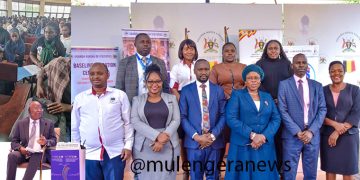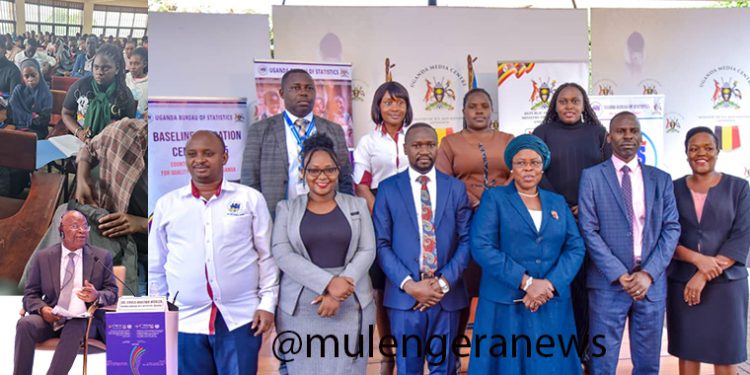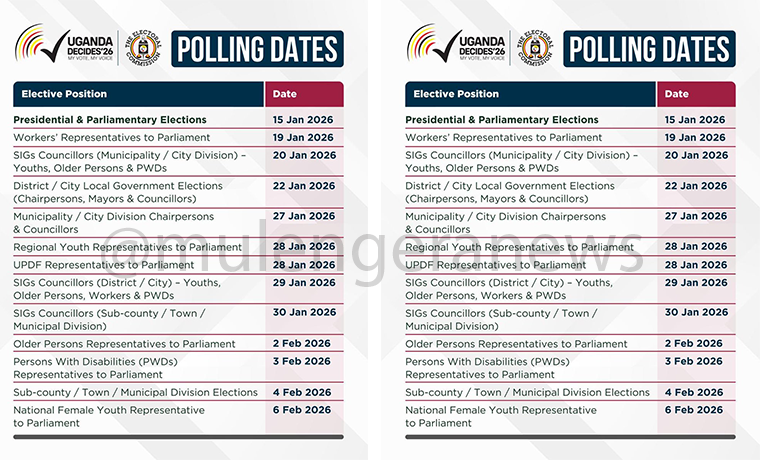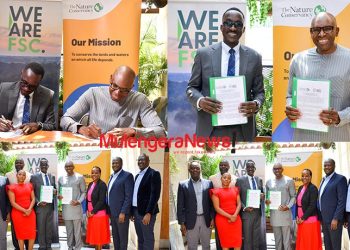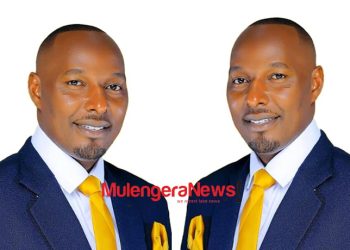By Mulengera Reporters
On Thursday, at Uganda Media Center, State Minister for Education Dr. Joyce Moriku Kaducu represented her boss First Lady Janet Museveni to address a news conference that was specially convened to update the country on the ongoing 2025 Baseline Education Census Exercise. This all-important exercise basically is about head-counting and individually enumerating all learners & staffers in Uganda’s nursery-to-University learning institutions, while capturing their characteristics.
Commenced on Monday 7th April for the case of the three Greater Kampala Metropolitan Area (GKMA) districts of Kampala, Wakiso & Mukono, the education census exercise will cover each and every educational institution in Uganda from the lowest level, which is nursery, to the highest which is the University. All nursery learning centers, primary and secondary schools plus tertiary and University institutions will be covered.
According Dr. Kaducu, every learner will be enumerated by way of individually interacting with the more than 8,500 enumerators who the mandated Uganda Bureau of Statistics (UBOS) has carefully identified, recruited and specially trained for the task at hand. These are to be dispatched and scattered to cover the whole country in the respective regions, districts, cities, municipalities, divisions, wards/parishes and villages or cells where the different academic institutions are situated or located.
All learners below primary five (P5) will be aided by their teachers to effectively interact with the enumerators while responding to the relevant questions. Yet those in primary five and above will be their own primary respondents; implying that they will personally interact with the enumerators by personally answering all the enumerators’ questions.
Dr. Kaducu says that the information obtained at the end of the education census exercise will enable government to authoritatively validate or dispute data, which the relevant authorities manning the different academic institutions upcountry have been submitting to the center relating to enrollment figures and several other things.
The questions to be asked will relate to the learner’s name, date of birth, sex, nationality, Learner Identification Number (LIN) for those already registered on the Education Management Information System (EMIS) portal, NIN and student pass or refugee ID where applicable. The learner’s learning special needs will equally be ascertained if any, and the relevant information captured.
Besides learners, personal information relating to staffers or teachers working for all the different learning institutions in Uganda will equally be captured. This will impact both teaching and non-teaching staff, and support staff too. Each one of them will have their full names, date of birth, NINs, work permits (for non-nationals), refugee ID where applicable, subjects taught, Teacher Management Information System (TIMS) number and qualification levels captured.
Referring to the joint media statement jointly authorized by her boss Janet Museveni and UBOS Executive Director Dr. Chris Mukiza, Minister Kaducu also clarified that non-teaching staff will be required to disclose their job title at the academic institution besides all the other relevant and applicable information their teaching counterparts will be required to disclose to the enumerators.
The Government of Uganda, on whose behalf both UBOS and Education Ministry are undertaking the education census exercise, is appealing to local government leaders in the respective districts, cities and municipalities all the way to village level to play a complementary role to ensure that members of the Ugandan public, parents, learners and other stakeholders fully embrace the exercise.
All the relevant information regarding the individual academic institutions will equally be captured during the exercise whose data collection phase commenced on Monday 7th April and is destined to culminate on Monday 30th June this same year. It’s being projected that as of that time, all the targeted academic institutions across Uganda will have been covered by the education census enumeration exercise.
Dr. Kaducu also used the Thursday media event in Kampala to elaborate that information specifically relating to the academic institution’s name, EMIS number, operational status, license number, date of founding and registration status will all be sought, obtained, captured and recorded by the enumerators. Authorities at the different academic institutions will be required to cooperate and be as truthful as possible in their responses.
Yet that isn’t all. The academic institutions, which stand to benefit from operating in a better-planned and better-regulated education environment as a result of the census exercise, will also be expected to truthfully disclose information relating to their physical location (by way of district, City, Municipality, Sub County, Division, Ward, Parish and village or cell). Where applicable, the GPS coordinates’ information relating to that physical location will equally be captured.
Also to be captured will be information relating to ownership and involvement of that institution in the implementation of government public education programs like UPE, USE etc. Details relating to the respective genders of staff will be captured too as will be their institution’s phone numbers and email address contacts.
Asserting that the overall objective of the education census is to enhance evidence-based planning, resources allocation and decision-making by the leadership at the apex of Uganda’s education system, Dr. Kaducu added that data about the available infrastructure will equally be captured to subsequently have in place the comprehensive profiling of the country’s education terrain.
Under the infrastructural profiling, information relating to the number & size of classrooms and other learning spaces at each of the country’s academic institutions will be captured. The same will apply to the available library and laboratory facilities and how equipped they are at each of the respective academic institutions that disclose to be having them. Toilet, storage, sporting and washroom facilities will equally be inquired into and all the relevant data compiled.
This in future will inform the designing of appropriate interventions by government potentially for the benefit of both private and public learning institutions. The availability and quality of accommodation facilities for staff will equally be inquired into and the relevant data captured as accurately as is practicable. Information on the availability of teaching and learning materials, like the number of textbooks per subject, too will be of interest to the enumerators.
Minister Kaducu further explained that, for planning and future resource allocation purposes, water & sanitation facilities access-related information will equally be captured from each of the learning institutions in the country-be they public or privately-owned. The enumerated institutions will also be required to disclose information regarding their electricity and energy supply sources. Such information is of paramount importance to the government for planning purposes.
Owners and those managing these respective academic institutions are being urged by government to cooperate by availing the census enumerators with all the relevant information and to be as truthful in their responses as possible.
OTHER STAKEHOLDFERS:
Parents are equally being required to do their patriotic duty as citizens of Uganda by availing their children or learners with NIN and LIN-related information so that they are enabled to effectively do their role especially for those from P5 upwards who will be required to serve as primary respondents to the census enumerators’ questions. Dr. Kaducu emphasized that parents have a huge role to play in ensuring that all learners at whatever level are enabled to effectively interact with census enumerators.
Kaducu went as far as providing mobile phone numbers via which staff at her Ministry’s media & public relations department can directly be contacted by stakeholders who might desire to seek clarification on anything regarding the all-important education census exercise. The contacts as disclosed by the Minister include the following: 0772933628, 0755342128, 0772454608 & 0704084329.
To achieve additional convenience, while ensuring the actual enumeration exercise, the production and publication of data are all expedited, the education census will be automation-enabled whereby Computer-Assisted Personal Interviewing (CAPI) capabilities will be leveraged. As it happened with the 2024 population census exercise, internet-enabled tablets will be used and Dr. Kaducu said this will impact quality of the final statistical product to be delivered at the tail end of the exercise besides making the education census faster.
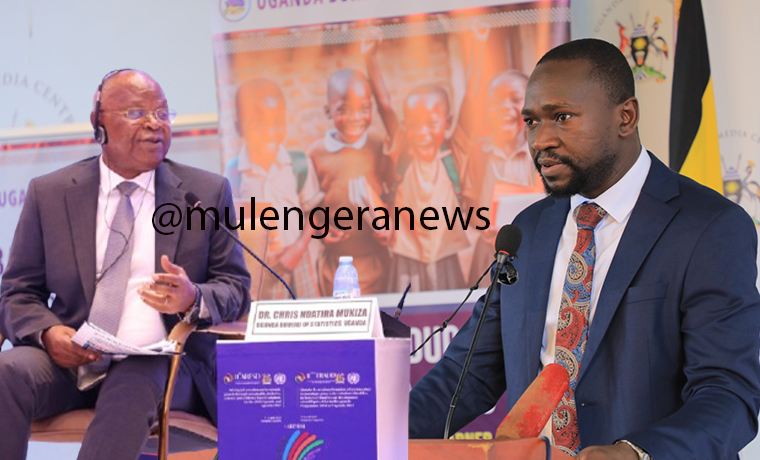
UBOS MESSAGE, THE 8.5K JOBS & THE SHS27BN:
On his part, Principal Communications Officer Didacus Okoth, who represented his boss the UBOS Executive Director, responded to some of the questions that came from reporters during the plenary session at the media event.
One of the questions related to the number of people that have been contracted to serve as enumerators and the total cost the GoU will incur on the entire education census exercise.
Mr. Okoth disclosed that a total of 8,500 Ugandans had been engaged to serve as enumerators, something that exposes them to gainful employment of some sort.
Besides revealing that a total of approximately Shs27bn will be expended on the education census exercise, Mr. Okoth asserted that over 4,000 of these enumerators had already completed their training subsequently getting deployed in the Greater Kampala Metropolitan Area (GKMA) where the education census exercise commenced on Monday 7th April.
As was emphasized by the Education Ministry’s Assistant Commissioner in charge of Statistics Monitoring & Evaluation, Vincent Ssozi who is among the technical officials Dr. Kaducu came with, Mr. Okoth revealed that both UBOS and the MoES are certain that the exercise will be completed by 30th June, which is when all academic institutions in the whole country are supposed to have been covered.
The academic institutions in the pace-setting GKMA will be completely covered as of the beginning of 2nd term whereafter their counterpart institutions in other parts of the country will be commenced upon. The enumerators will have up to 30th June to cover all these paving way for the production and publication of the final education census report.
Ideally, the experiences and lessons learned from the GKMA phase ought to be leveraged to guide on the subsequent phasing of the same census exercise to the rest of the country whose every part the UBOS enumerators are legally mandated to cover without fail. And gratefully, as Mr. Oboth assured the country, Uganda Bureau of Statistics is more than prepared to ensure that the high expectations the GoU has in them are appropriately met. (For comments on this story, get back to us on 0705579994 [WhatsApp line], 0779411734 & 041 4674611 or email us at mulengeranews@gmail.com).
